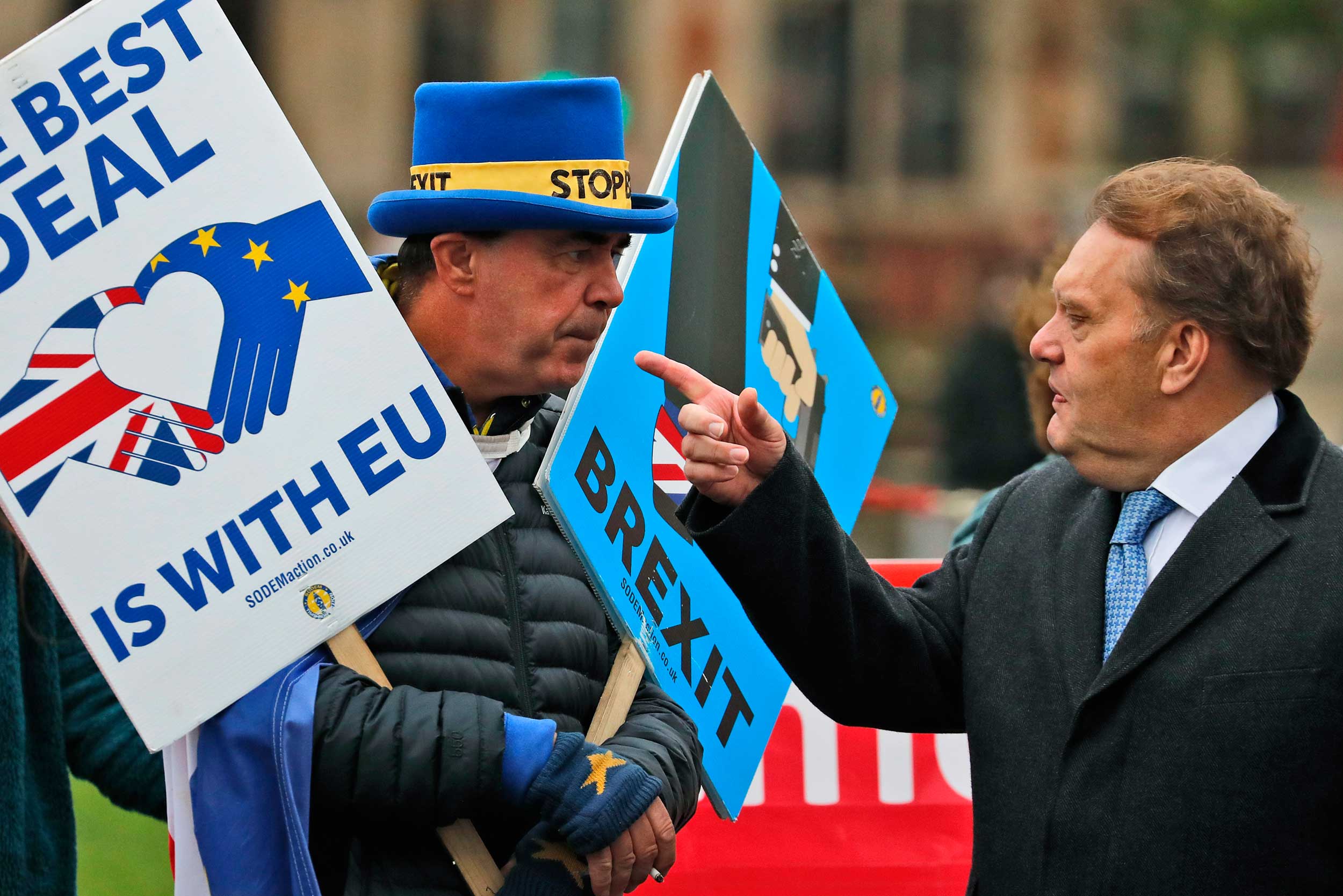Martin Bradford played guitar at a local venue for the better part of a decade, but he avoids the place now because performing there would mean working with its sound engineer.
And that would not end well.
Sipping a pint in a riverside pub, Bradford recalls how he casually mentioned his vote to leave the EU and instantly lost a friend.
“‘You’ve taken my retirement away,’” Bradford was told, the reasoning being that the sound engineer hoped to move to another EU country, a right that Brexit could threaten.
“Once that conversation had happened there was no going back,” said Bradford, who also avoids members of his old band after some posted comments on social media that, he said, “painted the people who voted leave as racists, bigots, evil, stupid”.
Like the election of President Trump, the 2016 Brexit referendum vote crystallised divisions between cities and towns, young and old, the beneficiaries of globalisation and those left behind.
And far from fading, the Brexit divide seems to have become entrenched within many British workplaces, families and social circles.
Friendships lost or relationships broken by Brexit have been bemoaned by politicians, featured in newspaper advice columns and spawned novels and at least one play.
According to one survey, more than a third of those who wish to remain in the EU would be upset if a close relative married a strong leave supporter, suggesting that Brexit has morphed into a clash of values.
In the aftermath of the referendum, Relate, a counselling service, said that a fifth of the 300 relationship support practitioners surveyed had worked with clients who argued over Brexit. And analysts say Britons are increasingly likely to define themselves in relation to Brexit, rather than allegiance to a party, a dividing line noticed by psychotherapists too.
“It’s a bit like 16th-century France between the Catholics and the Protestants,” said Brett Kahr, senior clinical research fellow in psychotherapy and mental health at the Center for Child Mental Health, adding: “I think there is a great deal of hatred of one position towards the other, and a lack of willingness to engage.
“It doesn’t make sense to begin to doubt your position if you are so certain your position is the correct one,” Kahr said.
Of course, many Britons have tuned out, bored by endless and incomprehensible Brexit twists in Parliament. Talk of a religious war sounds overblown to Giles Fraser, rector of St Mary’s church in Newington, South London, but he accepts that “people are talking past each other in a way that perhaps believers, and non-believers, might talk past each other.”
“It’s definitely visceral, it’s definitely nasty, and there are certainly people who won’t accept the core of the other person’s position,” added Fraser, who thinks that his support for Brexit in London, which generally voted the other way, cost him friends.
If it is hard being a pro-Brexit clergyman in London, it is no easier being a remain supporter in Meden Vale, a former mining village in Nottinghamshire, 150 miles north of the capital, where most people voted leave.
But not Chris Hawkins. “I can’t honestly think of anyone from Meden Vale among my group of friends or people I know who voted remain, apart from myself,” said Hawkins.
After arguments about Brexit, Hawkins sees less of his two best friends, who now tend to socialise or take bike rides without him. With his parents there has been tension though the major conflict was with one of his partner’s relatives. The discussion was “not very good”, he said with understatement. “He erupted.”
“We’ve not been invited to family birthday parties or get-togethers post referendum, whereas before we were,” said Hawkins who thinks that, here, remainers are seen as being removed from the real world. “I did get a lot of, ‘You went to university,’ after the vote,” he added. Some experts worry that, rather than open feuding, a chilly silence has descended across parts of a population.











